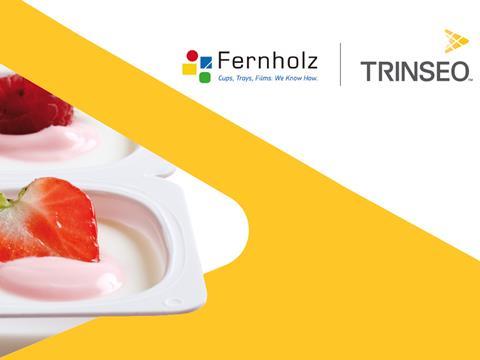
Trinseo, a global supplier of material solutions and manufacturer of plastics, latex binders, and synthetic rubber, has developed a new grade of post-consumer recycled polystyrene (r-PS), together with the German packaging manufacturer Fernholz.
The latest Form Fill Seal (FFS) formulations incorporate 40% r-PS, depending on final application, thanks to Trinseo’s technology, which embeds the material into the polymerization process using solvent processes.
“With r-PS technology, we have developed a process that will help the plastics industry conserve resources and reduce oil consumption,” said Nicolas Joly, vice president of plastics and feedstocks at Trinseo. “We are very pleased to work with Fernholz as our collaboration partner to jointly respond to consumer and market expectations, offering companies a tangible solution for more sustainable packaging.”
Fernholz is working closely with Trinseo to incorporate r-PS into sheet production, which can be used for food packaging applications in compliance with food safety requirements. To date, full-scale field tests for processing, migration, sensory testing, and other common parameters have reportedly revealed that r-PS can be readily processed on classic FFS machines, eliminating the need for costly equipment upgrades.
“The feedback we have received from customers so far has been overwhelmingly positive,” commented Uwe Fernholz, managing director at Fernholz. “The market has been waiting for a solution like this for a long time. As a result of the positive feedback, we are very confident that this breakthrough in recycled packaging made from polystyrene will help the value chain to meet its sustainability goals.”
The new material grade is being trailed by several European dairy companies, some of whom have already launched new products using the recycled polystyrene food packaging. Trinseo says that as it is one of the few materials with PCR content available in large quantities, it has the capacity to supply the dairy industry and related sectors with several thousand tons of the material.
Furthermore, due to the recycling technology involved in the process, mono-material packaging, though preferable, is not mandatory. The lid or label can apparently be safely separated as part of the recycling process.
















